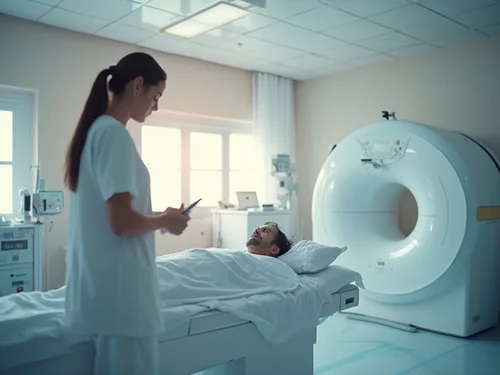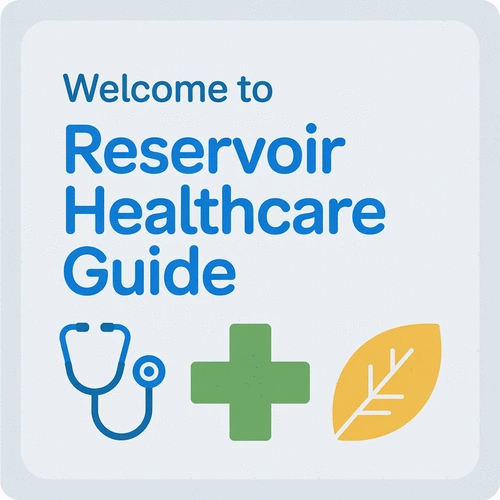What if you could transform your anxiety about medical appointments into confidence? Understanding diagnostic scans can empower you to take charge of your healthcare journey and make informed decisions that impact your well-being.
What You Will Learn
- The purpose and types of diagnostic scans, such as X-rays, CT scans, MRIs, and ultrasounds.
- How diagnostic imaging aids in early disease detection and treatment planning.
- Essential preparation tips, including fasting requirements and clothing choices for scans.
- The importance of open communication with healthcare providers for a smoother experience.
Understanding Diagnostic Scans: What, Why, and How to Prepare
Diagnostic scans are crucial for effective healthcare. This visual breaks down the key aspects of these procedures, from their purpose and importance to essential preparation steps, helping you navigate your healthcare journey with confidence.
What is a Diagnostic Scan?
Medical imaging procedure to visualize internal body structures, revealing issues not apparent through physical exams.
- X-rays: Bones & tissues
- CT scans: Cross-sectional view
- MRIs: Soft tissue evaluation
- Ultrasounds: Sound waves, pregnancy
Role in Healthcare
Critical for effective healthcare delivery, providing clarity for complex medical questions.
- Early disease detection
- Monitor treatment effectiveness
- Guide surgical planning
Knowledge empowers informed healthcare choices.
General Preparation Tips
Approach your appointment with peace of mind by following these general guidelines:
- Check specific instructions
- Arrive early for paperwork
- Bring something to occupy time
Key Preparation Steps
- Fasting: Follow guidelines, especially for contrast dyes. Ask if unsure.
- Medications: Consult doctor about pauses.
- Clothing: Comfortable, loose-fitting attire.
- Avoid: Jewelry & metal objects (can interfere).
Understanding Diagnostic Scans and Their Importance
In today’s healthcare landscape, diagnostic scans play a pivotal role in understanding our bodies and diagnosing various conditions. These scans are not just routine; they are essential tools that help healthcare professionals make informed decisions about our health. But what exactly is a diagnostic scan, and why is it so important? Let’s dive into this topic to demystify the process!
What is a Diagnostic Scan?
A diagnostic scan is a medical imaging procedure that allows healthcare providers to visualize the internal structures of the body. It uses advanced technology to create detailed images, which can reveal issues that may not be apparent through a physical examination alone. Common types of diagnostic scans include X-rays, CT scans, MRIs, and ultrasounds.
- X-rays: Great for viewing bones and certain tissues.
- CT scans: Provide cross-sectional images for a more detailed view. For more information on CT scans and their uses, you can refer to resources like UC Davis Health's explanation of CT scans.
- MRIs: Excellent for soft tissue evaluation.
- Ultrasounds: Use sound waves to create images, especially useful for monitoring pregnancy.
Understanding these scans helps patients feel more prepared and less anxious about their appointments. As we progress through this guide, I’ll share insights that empower you to navigate your diagnostic imaging experience with confidence.
The Role of Diagnostic Imaging in Healthcare
Diagnostic imaging is not merely a tool; it serves as a critical component of effective healthcare delivery. These procedures provide crucial information that can lead to timely diagnoses and treatments, potentially saving lives. Have you ever wondered how a doctor decides the best plan for your health? Diagnostic scans offer the clarity needed to tackle complex medical questions. The American College of Radiology (ACR) Appropriateness Criteria provide evidence-based guidelines for imaging exams, helping healthcare providers choose the most appropriate diagnostic tests.
- They assist in early disease detection.
- They help in monitoring the effectiveness of ongoing treatments.
- They guide surgical planning and interventions.
At Reservoir Healthcare Guide, my goal is to ensure that every resident in our community understands the importance of these scans. Knowledge is power, especially when it comes to making informed healthcare choices for yourself and your loved ones.
General Preparation Tips for Diagnostic Scans
Preparing for a diagnostic scan can feel overwhelming, but it doesn’t have to be! With the right information, you can approach your appointment with peace of mind. Here are some general tips that will set you up for success.
- Always check with your healthcare provider for specific instructions.
- Plan to arrive early to complete any necessary paperwork.
- Consider bringing a book or something to occupy your time while waiting.
What to Do Before Your Diagnostic Scan
Before your diagnostic scan, there are a few crucial steps to follow. Each type of scan may have different requirements, so it’s vital to be informed!
Fasting Requirements: When and What to Avoid
Some scans may require you to fast beforehand, particularly those involving contrast dyes, such as CT scans. This means avoiding food and drinks for a specified time before your appointment. For detailed fasting guidelines and other preparation instructions for various exams, you can consult resources like Diagnostics Northwest's exam preparation instructions. If you have questions about fasting, please don't hesitate to ask your healthcare provider for clarification!
Medications: Can You Take Them Before Your Scan?
Generally, many medications can be taken as usual, but certain scans may require you to pause specific medications. Always consult with your doctor about what to do regarding your prescriptions. Being informed about your medications can help you avoid unnecessary complications!
What to Wear for Your Diagnostic Imaging Appointment
Deciding what to wear on the day of your diagnostic scan is easier than you might think! Comfort is key, especially if you’ll be sitting or lying down for a while.
Comfortable Clothing: A Key to a Smooth Experience
Wear loose-fitting clothing that allows easy access to the area being scanned. Think about it—no one wants to deal with tight pants or shoes when they’re trying to relax for a scan.
Items to Leave at Home: Jewelry and Metal Objects
It’s best to leave jewelry and any metal objects at home. These items can interfere with the scan results, and some scans require you to be in a metal-free environment. Save yourself the hassle and plan ahead!
Pro Tip
Did you know? Preparing your mind is just as important as preparing your body for a diagnostic scan. Take a few moments to practice deep breathing or mindfulness techniques before your appointment. This can help reduce anxiety and improve your overall experience.
Frequently Asked Questions About Diagnostic Scans
- What is the main purpose of a diagnostic scan?
- Diagnostic scans are medical imaging procedures used to visualize internal body structures, helping healthcare providers detect and diagnose issues not visible through physical examination alone. They are crucial for early disease detection, monitoring treatment effectiveness, and guiding surgical planning.
- What are the common types of diagnostic scans mentioned in the article?
- The article mentions X-rays (for bones and tissues), CT scans (for cross-sectional views), MRIs (for soft tissue evaluation), and ultrasounds (using sound waves, often for pregnancy monitoring).
- Why is fasting sometimes required before a diagnostic scan?
- Fasting may be required, especially for scans involving contrast dyes, to ensure accurate results and minimize potential complications. It's important to follow specific instructions provided by your healthcare provider.
- What should I wear to my diagnostic imaging appointment?
- You should wear comfortable, loose-fitting clothing that allows easy access to the area being scanned. It's also advisable to leave jewelry and any metal objects at home, as they can interfere with the scan results.
- How can I prepare myself mentally for a diagnostic scan?
- Beyond physical preparation, mental preparation is also important. The article suggests practicing deep breathing or mindfulness techniques before your appointment to help reduce anxiety and improve your overall experience. Open communication with your healthcare team about any concerns is also encouraged.
Summarizing Key Takeaways for Diagnostic Scan Preparation
As we wrap up our discussion on diagnostic scans, it's important to reflect on the key points that can help you prepare effectively. Understanding both general and scan-specific tips makes a significant difference in ensuring a smooth experience. Here’s a quick summary:
- Follow fasting guidelines when required to ensure accurate results.
- Communicate with your healthcare provider about any medications you are taking.
- Wear comfortable, loose-fitting clothing to facilitate the scanning process.
- Manage anxiety by discussing your concerns with the technologist beforehand.
By keeping these tips in mind, you empower yourself to navigate the process with confidence. Remember, preparation is key to achieving the best outcomes!
Encouraging Open Communication with Healthcare Providers
Open communication with your healthcare team can significantly reduce any apprehensions you may have about your diagnostic scan. Don't hesitate to reach out with questions or concerns regarding the procedure or your health history. At Reservoir Healthcare Guide, I encourage my readers to voice their needs, as this fosters a better understanding of your individual health circumstances.
- Ask about the purpose and process of your scan.
- Inquire about the expected duration and any potential discomfort.
- Seek clarification on post-scan care and follow-up procedures.
Remember, your health journey is a partnership. Engaging in an open dialogue not only helps you feel more at ease but also enables your healthcare provider to give you the best possible care.
Empowering Patients: Taking Charge of Your Diagnostic Imaging Experience
Importance of Being Informed and Prepared
Being informed and prepared for your diagnostic imaging experience can significantly enhance your comfort level. Knowledge is power! When you have a clear understanding of what to expect, you can alleviate any unnecessary anxiety. Familiarizing yourself with the specific requirements for your scan can help ensure everything goes smoothly on the day of the appointment.
- Review any pre-scan instructions carefully.
- Gather questions about the procedure or any concerns you might have.
- Consider contacting your healthcare provider for any last-minute clarifications.
Taking these steps not only benefits you but also optimizes the workflow for everyone involved, ensuring a better experience overall.
Next Steps: What to Do If You Have Further Questions
If, after reading this article, you still have questions or concerns about your upcoming diagnostic scan, I encourage you to take action! You can:
- Contact your healthcare provider directly for personalized answers.
- Visit our website at Reservoir Healthcare Guide for more in-depth resources.
- Join our community discussions to connect with others who may have similar experiences.
Your healthcare journey is important, and seeking clarity is vital. Don’t hesitate to advocate for yourself and reach out for support. Together, we can ensure you feel confident and prepared as you navigate your health care options!
Recap of Key Points
Here is a quick recap of the important points discussed in the article:
- Understand Diagnostic Scans: Familiarize yourself with different types of scans such as X-rays, CT scans, MRIs, and ultrasounds to reduce anxiety.
- Preparation is Key: Always follow fasting guidelines, communicate with your healthcare provider about medications, and wear comfortable clothing to ensure a smooth experience.
- Engage with Your Healthcare Provider: Open communication is essential; ask questions about the scan's purpose, process, and post-scan care.
- Be Informed: Knowledge about what to expect during the diagnostic imaging process can alleviate anxiety and enhance comfort.
- Seek Support: Don’t hesitate to reach out to your healthcare provider or community resources for additional information and reassurance.










